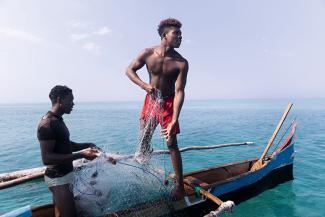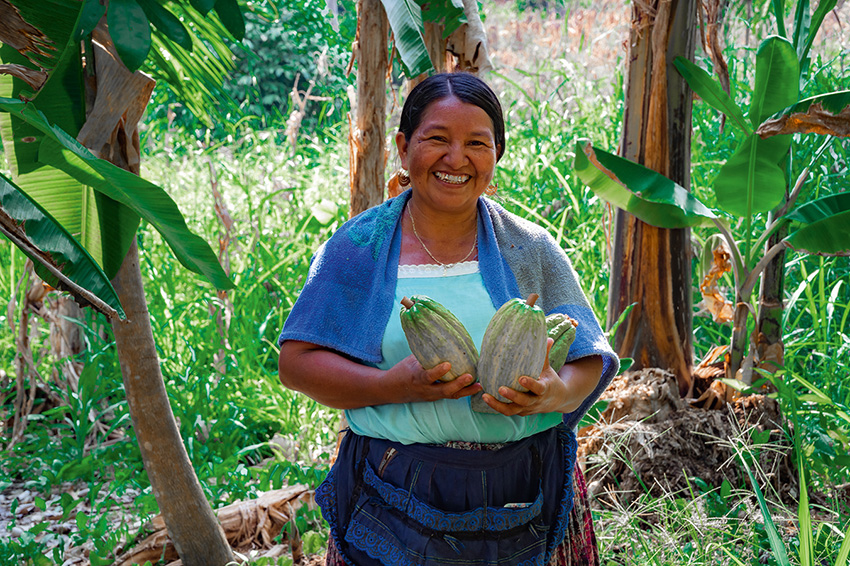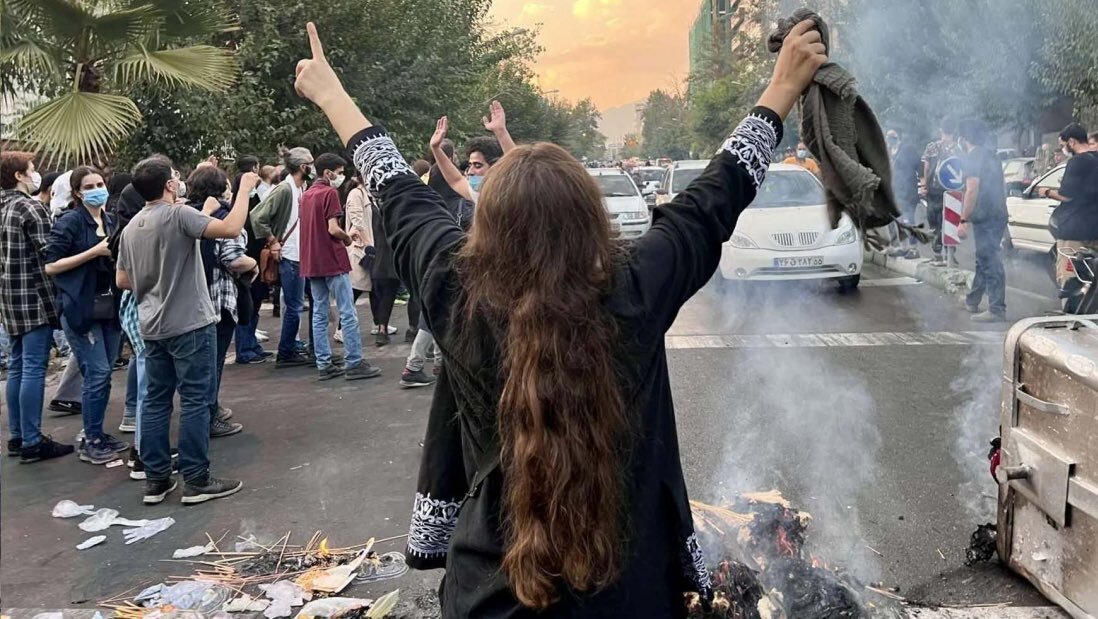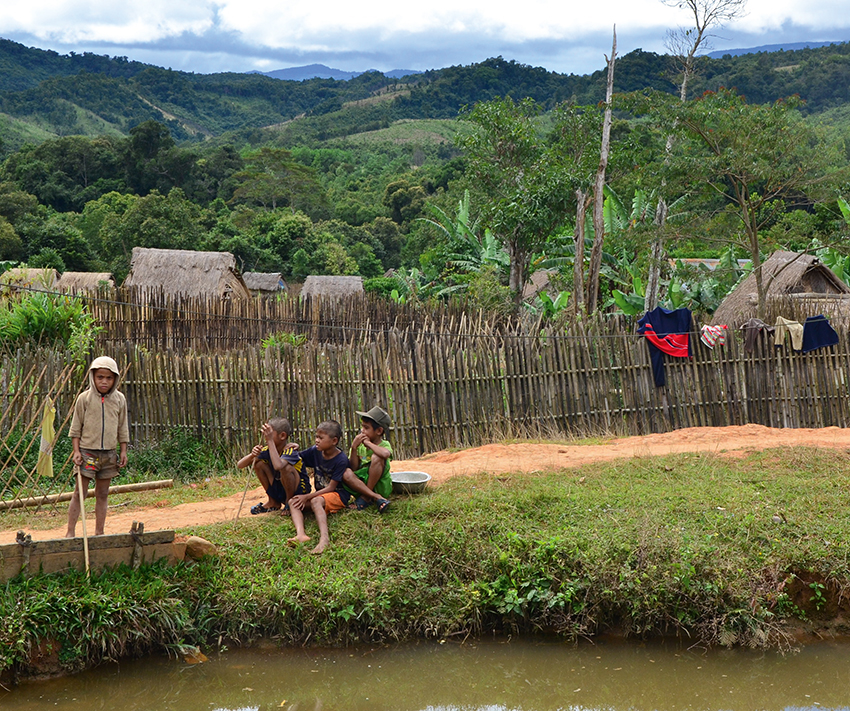Madagascar
Saving paradise

The key success factor is to get the local population on board and generate income opportunities for them. The KfW programme is currently running in several areas, with around 28,000 fishermen benefiting directly and around 50,000 people benefiting indirectly. KfW has already provided EUR 17 million on behalf of the German government for the sustainable use of coastal zones. A further EUR 10 million has now been secured for measures in mangrove areas.
“We would like to help people solve their own problems, especially the issues they caused themselves,” said Martin Bostroem, Technical Expert for Agriculture and Natural Resource Management for Sub-Saharan Africa at KfW. And the environmental problems are huge. Coastal dwellers are poor and have been overfishing their waters for years. They are constantly clearing the mangrove forests – important ecosystems that function as coastal protection – primarily to make charcoal.
The population is aware that overfishing is depriving themselves of their own livelihoods. However, due to poverty and a lack of organisational knowledge, they are unable to escape this vicious cycle. KfW’s approach is to help local non-governmental organisations (NGOs) that work with the local population. These include WWF and Blue Ventures, which support Locally Managed Marine Areas (LMMAs).
The NGOs help village communities to set up rules on the establishment of protection zones and protection periods, as well as monitoring their compliance with them. This allows fish and marine stocks to recover. “The great thing is that fish and even octopus grow within a few months and fishermen see rapid success. This naturally increases acceptance,” said Bostroem.
The NGO representatives also provide fishermen with improved equipment when needed, such as adapted fishing nets. Some use mosquito nets to fish and remove all living things from the water. Better boats are also provided so that fishermen do not have to fish so close to vulnerable corals. The programme also includes the development of new sources of income such as aquaculture. Algae or crayfish farming can be a sustainable alternative to fishing.
The KfW expert considers the programme’s success to be good, but success cannot be taken for granted. The implementation of the agreements is problematic, for example, in places where internally displaced persons from the drought-ridden south of Madagascar have settled. These people are not integrated into traditional communities and are difficult to reach. KfW and its partners must also negotiate the implementation of a controlled use of mangroves, as there are still political hurdles.
Sabine Balk












